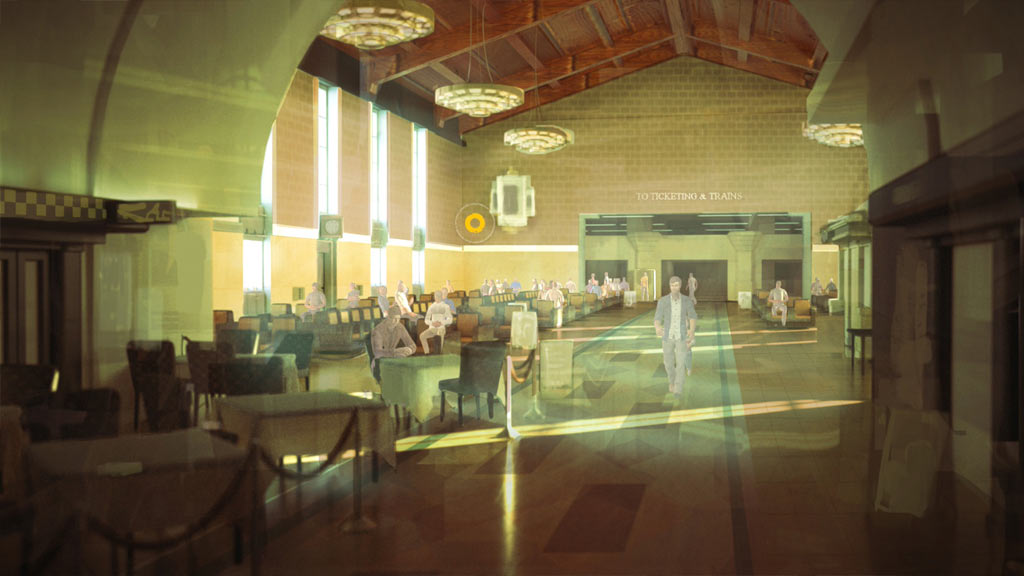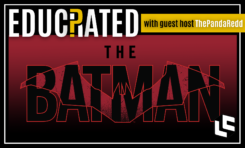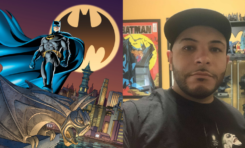What does it take to start a video game company and release your first game? We talked to Exploding Tuba Studios Designer Jonathan Straw about his experiences doing just that.
What inspired you to become a Game Designer?
I was originally planning on working at Blue Sky as a special effects artist out of college, but an academic encounter with Metal Gear Solid on PS1 really galvanized my desire to get into games.
 How did you build your skills to now?
How did you build your skills to now?
I studied film and animation at the University of the Arts (where I met [founder of Exploding Tuba Studios] Chris Tilton). After college I worked in a couple of small studios connected to bigger publishers. I spent the early part of my career making rather shoddy licensed party games, but at least I met a lot of great professionals. Around 2005, I really felt the itch to work on original, personal projects and started learning to program. By 2010, I had managed to shift my career track from art to design and got picked up by Telltale in their design department. By then, I had just learned so many aspects of game development that I was able see a project from start to finish.
What made you want to start your own company?
Actually, Chris wanted to start a company. At the time, I was preparing to move over to 2K Marin, but Chris head-hunted me. We’d been long time friends and spent a lot of our post-college years conceptualizing original games. Recently it’s been sort of the age of the indies. The time just seemed right for us.
Congratulations on releasing your first game, Divide. Tell the people at home about it!
Thank you! Divide falls into the lonely sci-fi category. It’s a story about a regular guy, David, who is transported to a mysterious dystopian world. Unfortunately, the device that swallows him up in a wormhole doesn’t quite reach his young daughter, and the two are separated. David quickly finds himself lost in the bowels of an abandoned underground city, surrounded by robots and the minions of an evil corporation trying to tie up loose ends.
The game is played from an isometric point of view and feels like a science-fiction dungeon crawl in the vein of classic games like Flashback and Out of This World.
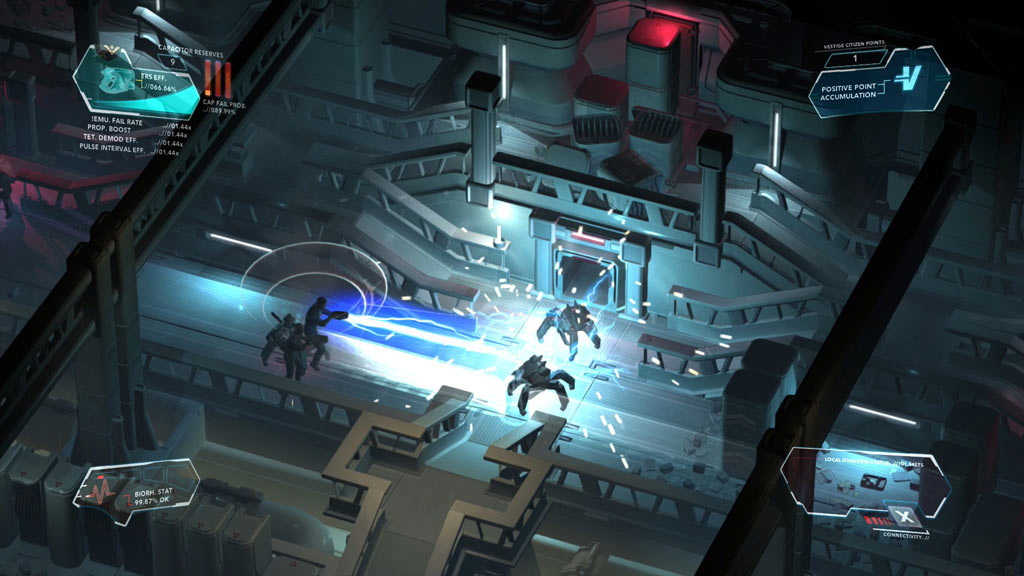
(Exploding Tuba Studios)
How did you decide on this genre as your first game?
Chris had a story in mind when he started Exploding Tuba Studios and we’re both pretty fond of science-fiction. We also like worldbuilding and boy, have we built a world that has a lot of room for growth as a setting for future games.|
What was the development process like?
The development process has been one of the most challenging and stressful things I’ve ever done. My typical anecdote is that our schedule had enough work for 14 people, 10 of which are me. Everyone on our core team of three (now four) wore multiple hats. Chris, for instance, who is a career composer in film, games, and television, had to learn how to design levels and script them.
We sought to hire contract artists rather than staff any. This allowed us short but fruitful relationships with artists like Chris Durso, who provided environment concept and art, and Kevin Dalziel who handled characters and animation. We also benefited from a lot of professional industry friends for short and long term assistance.
I largely developed the art and rendering pipeline as well as designing our gameplay systems on a technical level. I also did preliminary designs on all our combat oriented arenas.
Our entire studio is remote, so we have no actual brick and mortar office to go to. We all get up and commute to our home office and orchestrate everything over Google Hangouts. Even our VO recording was done remotely at Chris’ studio in Burbank while I directed from Petaluma. One of the nice things about this arrangement is that we can comfortably work odd hours to get rush deadlines over with. Which has been a big deal these last couple of months.
Was there any part of it that was surprisingly easy? Or surprisingly difficult?
Nothing about this has been really easy other than coming up with a cool sci-fi world and the characters to tell a story in it.
We did manage to find a 3rd party procedural lightning effect for Unity that completely elevated some of our special FX to the next level. Nice to have something work so great right out of the box.
The thing that I found surprisingly difficult was the amount and complexity of shaders I had to write for the game. You have to consider that most commercial game engines expect you to make a 3rd or 1st person game with the camera inside the world. Because our camera is outside of the world, we had to rewrite the way the engine sees and draws everything almost from scratch.
What was your favorite aspect of the game to work on?
I’m very proud of the environment systems I invented. We do two really clever things. The first is something we call detail mapped 3D. We take advantage of the fixed camera view to pack thousands and thousands of polygons worth of detail into very simple 3D level pieces that might only be a dozen actual polygons in the game. We get an unprecedented amount of lighting and shadow effects on surface features that technically aren’t even there. It’s like a hybrid pre-rendered/real time approach.
The other is our deep matte paintings where we mask 3D characters into 2D, hand painted backgrounds for certain story moments and set pieces. It’s not unlike how the old Resident Evil games looked. But since I didn’t have direct access to how they achieved that effect, I had to invent it all over again.
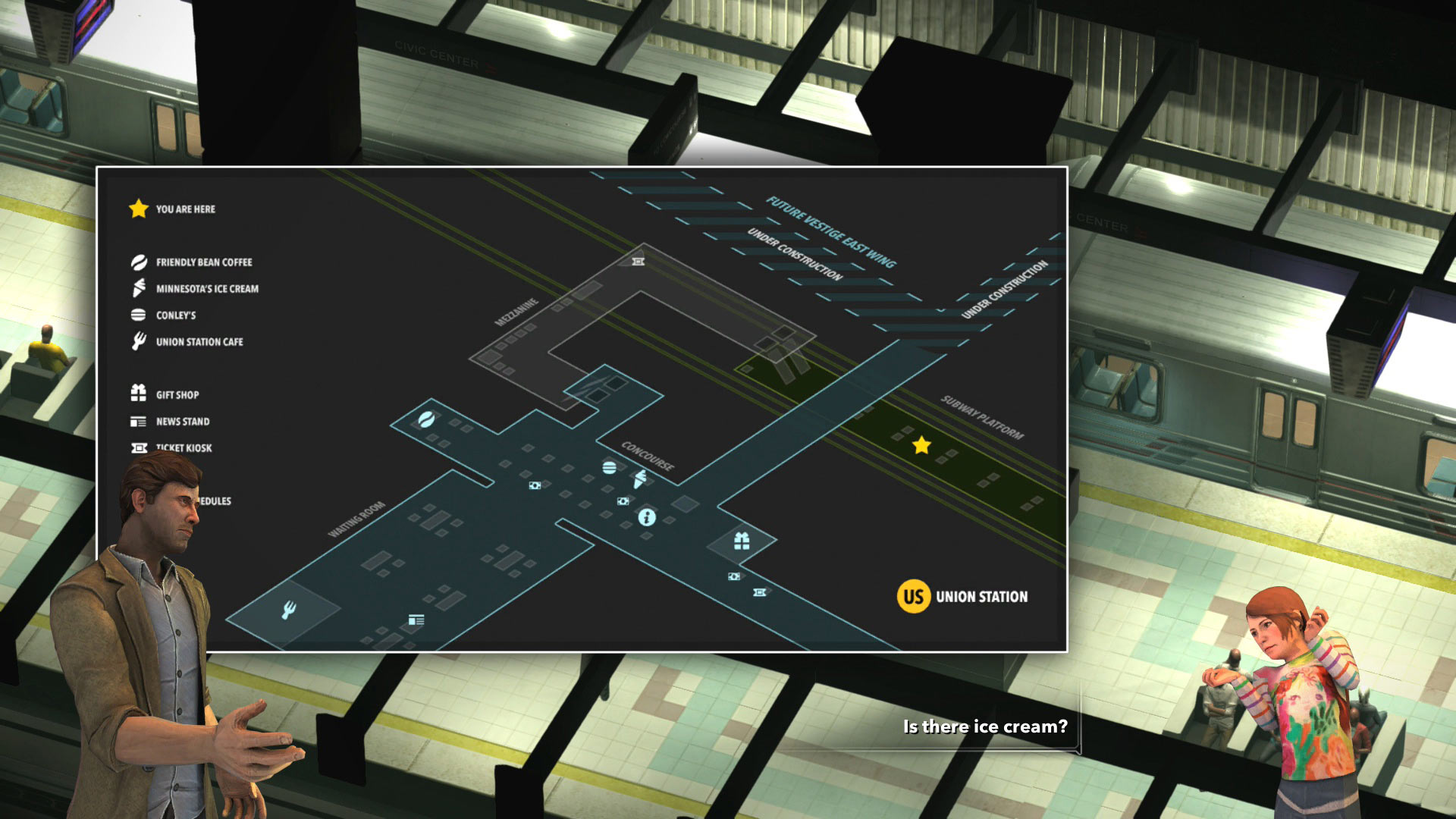
(Exploding Tuba Studios)
What was the voice casting process like?
We lucked out on our primary cast. For our main character, we were originally working with our friend Tom Everett Scott just through personal connections. Unfortunately, he’s super busy and scheduling conflicts forced us to recast him. We also stumbled on casting Paget Brewster through personal acquaintances. And A.J. Locascio I knew from working on Back to the Future: The Game at Telltale (he voiced Marty McFly).
The rest, we went the agency route, which is kind of like speed dating. You get a bunch of auditions read from a sample of script you provide, and you sort of go with your gut. Close your eyes and listen for the voice that invokes the image of the character you are casting in your mind. It worked really well for us and we met a few great actors we’d love to work with again.
Chris also composed the music for the game. How closely did you work together for that?
I think on a professional whim, Chris used this opportunity to see what could be done with video game music when the composer is directly involved with the game design. We have a very embryonic experiment into making a truly synergistic game soundtrack, meaning we don’t want it to just play aimlessly. Chris wants game music to be as dynamic and responsive to the player and their actions as any other system in a game.
Hopefully with future games, we’ll only get better and better at treating the music as a “pipeline” in the overall game development from start to finish.
What else do you nerd out on? What’s your favorite stuff right now?
Oh. I’m finally excited about Star Wars again. I’ve been reading almost all the new Marvel Comics Star Wars stuff. Also, whenever I can get time, I run a Lazer Tag group for adults where we play 1st person shooter tactical games at night in local parks. I fabricate a lot of accessories and gadgets for this group.
You mentioned you worked on Back To The Future: The Game during your time at Telltale. You also worked on the Jurassic Park and Walking Dead games. Are there any other franchises you’d love to make a game for?
Well, this ship has sailed, but I was originally slated to work on King’s Quest and potentially Space Quest when Telltale had the rights. I’m so sad that fell through.
But honestly, Chris and I have so many ideas, as long as we can keep Exploding Tuba alive, we’ll never run out of original games to make. We don’t need to seek out licenses to other people’s IPs.
Oh… but I’d looove to make a fighting game or beat ‘em up based on Barry Gordy’s The Last Dragon, the most amazing movie ever made! [Editor’s Note: It is, indeed, a most amazing movie.]
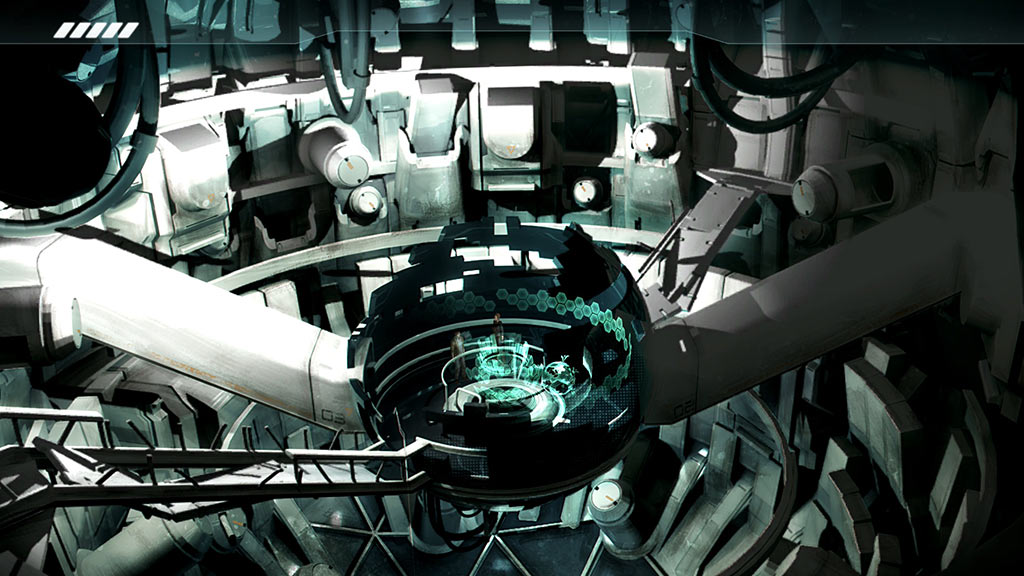
(Exploding Tuba Studios)
What advice do you have for aspiring designers/developers or folks who want to start their own company?
For aspiring developers, focus on one major discipline. Become awesome at it. If you’re still in school, then I recommend trying to get a junior position at a major developer to get a sort of trial by fire introduction to the industry. It’ll get you a lot of experience and contacts that will serve you well in this super competitive industry.
If you want to start your own company, make sure you and someone you trust actually know how to make a game from start to finish (including the main menu!). With major game engines going to free or affordable subscription models, this is the perfect time for a resurgence in garage game developers. Good luck!
And lastly, we asked Jonathan to choose some either/or answers… for reasons!
Link or Zelda?
Link. I know Link. I’ve been Link.
Enchanted Sword or Laser Sword?
Por que no los dos?? So long as I can be assured the enchantment doesn’t involve the ability to speak or sing, then I’d probably go for the enchanted sword.
Fire Flower or Super Leaf?
Super Leaf. Only plebes move slow enough to make the Fire Flower worthwhile.
Red Ranger or Green Ranger?
I’d rather this question be about color coded lions. But my answer is Red Ranger, I just can’t remember why.
Super Speed or Telekinesis?
Telekinesis. Get strong enough in this super power and you could achieve flight.
Mermaids or Fairies?
Brian Froud fairies? Definitely.
Divide is now available on the PS4 and the soundtrack can be found on Bandcamp. Keep up with Exploding Tuba Studios on Twitter and Facebook (@explodingtuba) or visit their website: www.dividegame.com.
